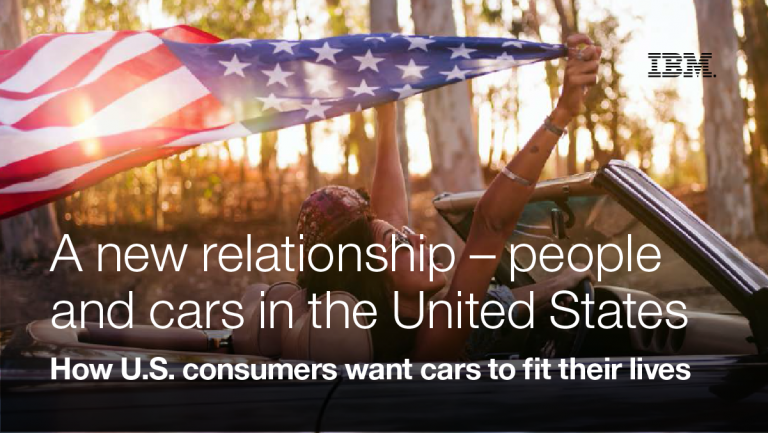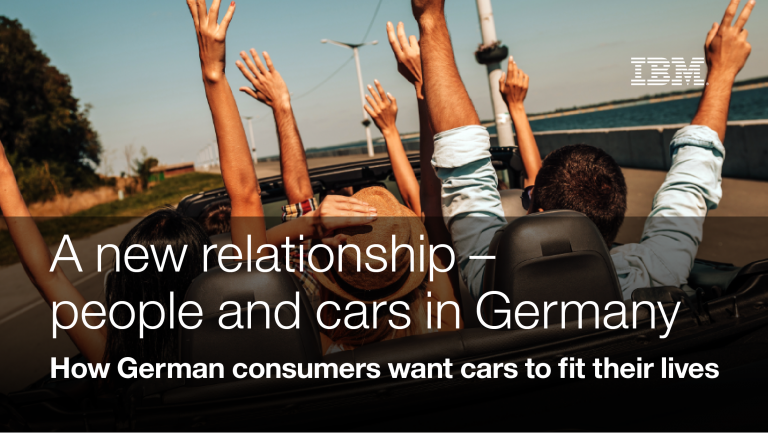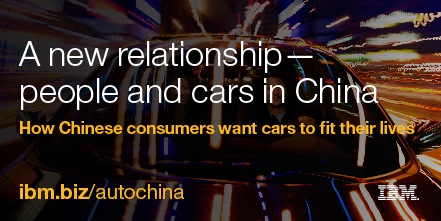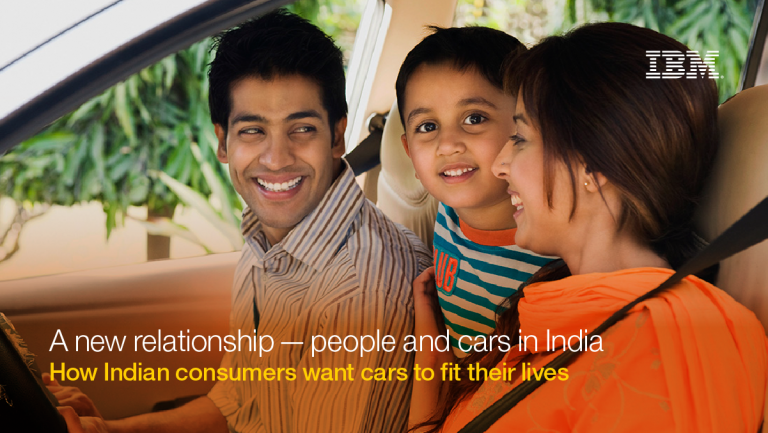Will consumers want to own cars in 10 years? Are alternative ownership models the future of mobility? What technologies do people want in cars?
These are just some of the questions the IBM Institute for Business Value set out to answer in our auto consumer study, A new relationship – people and cars. We surveyed 16,469 people across 16 top automotive markets to get a better understanding of what people expect.
Perhaps our most significant finding is that there isn’t one answer for everything. People want to have choices in how they move around, whether they use their own cars, share rides or take public transportation. And they might want a combination of these options.
The relationship between people and cars need to be very personalized. Vehicles and mobility solutions must fit consumers’ lifestyles and be available on-demand. Gone are the days when people talked about physical features of a car, such as horsepower. Now, they want cars that are connected, fix themselves and monitor passengers’ health.
But not everyone agrees on how much technology cars should have. Sixteen percent of the people we surveyed (“The Pacesetters”) were very enthusiastic about technology in all aspects of vehicles and mobility. But others (“The Spectators”) had no interest in technology or new mobility services. They represented about 14 percent of our sample.
Significant differences emerged among consumers in different geographic regions. Consumers in growth markets had a stronger desire for new technology and mobility services than consumers in mature markets. For instance, consumers in growth markets rated self-driving capabilities much higher than consumers in mature markets. Consumers in mature market countries were most interested in self-healing capabilities.
Here are some findings from four key geographic markets:
US consumers continue to value personal cars. We saw only a 10 percent decline in those who said they plan to use personal vehicles as their primary mode of transportation and only a small increase in the number of people who said they prefer ride-sharing options. Fourteen percent of the US group were Pacesetters while 21 percent were Spectators.
Respondents said they were more interested in self-healing and self-learning cars than self-driving cars. They also placed a higher value on the ability to buy goods and services directly from cars.

German consumers are among the most enthusiastic about car- and ride-sharing. Surveyed consumers 35 years and older said they expect their use of these transportation methods to increase more than six-fold between 2015 and 2025.
German consumers also said they expect cars to be intelligent, but only a little more than one-third of those surveyed said they were very interested in cars that drive themselves. Much like US consumers, they said they would like to access commerce services from their cars. Learn more:

Chinese consumers still want to own cars because that demonstrates financial success. But owning a car and driving it are two different things. Our survey group said that self-driving cars were their highest priority. Surprisingly, access to health services from the car was near the top of their list, too.
Chinese consumers also said they would like to be actively involved in creating new products and services. Forty-four percent of respondents said they would allow companies to use their mobility data and 39 percent said they would be willing to submit their own ideas. Learn more:

Indian consumers have the strongest desire for digital technology in vehicles and mobility services. Thirty-three percent of Indian consumers we surveyed were Pacesetters while only 3 percent were Spectators.
Indian consumers ranked self-driving as the most desired capability, followed by self-learning. They also ranked concierge services highly. While personal ownership remains an important indicator of social status, Indian consumers said they are interested in alternative ownership models, such as subscription pricing. Learn more:

Meet the author


